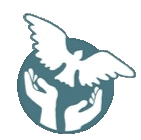We stand in solidarity with the people of Ukraine. As civilian areas and hospitals become targets of the assault, we are witnessing crimes against humanity. There is no justification for this indiscriminate attack meant to topple a nation. We pray for an end to this carnage - Staff of BCRHHR
a program of the Immigrant and Refugee Health Center
at Boston Medical Center

FAQ
What is the difference between a refugee and an asylum seeker?
The difference between a refugee and an asylum seeker relates to when and where a person’s application to resettle in the United States takes place. Refugees apply for processing in other countries before reaching the United States. Asylum seekers apply for processing in the United States after they have entered the country, or are at the border. If asylum seekers are granted political asylum, they become asylees. Torture survivors might arrive under forms of immigration status that were necessary to get out of the country (i.e., visitor’s visa) and apply for political asylum once they are safely on U.S. soil.
What is torture?
Torture as defined by section 2340 (1) of title 18 United States Code, is an “act committed by a person acting under the color of law specifically intended to inflict severe physical or mental pain or suffering (other than pain or suffering incidental to lawful sanctions) upon another person within his custody or physical control.”
What does BCRHHR do?
We provide comprehensive medical and mental health care coordinated with social services and legal aid for asylum seekers, refugees, survivors of torture, and their families. We also train professionals to serve this population, conduct research to understand and implement best-practices, and promote health and human rights, locally and globally, to improve the quality of life for survivors of torture and their communities.
What countries do most of your clients come from?
The vast majority of our clients come from Africa, with the top three countries being Uganda, Somalia, and Cameroon.
How do refugees and asylum seekers find out about the program?
Most clients are referred to us by their attorney, a resettlement agency or health care provider. A significant portion of our clients learn about us through word of mouth from family and friends in their communities.
How do I make a referral?
Does BCRHHR host any events?
We host a monthly open house for community members interested in learning more about our work. Every June, we host a gala for clients, staff, and community members to commemorate World Refugee Day and the United Nations International Day in Support of Victims of Torture. For more information click here.
Do you collaborate with other organizations in the area?
Yes, we are a member of the National Consortium of Torture Treatment Programs (NCTTP) . Since we provide a comprehensive range of services, we collaborate closely with immigration lawyers, other health care providers, and other social and refugee related agencies.
How can I help?
There are many ways you can help! Please visit our volunteering and internships page and be sure to check for open positions.
How can I request a speaker from your staff or organization?
Click here to request a speaker.
